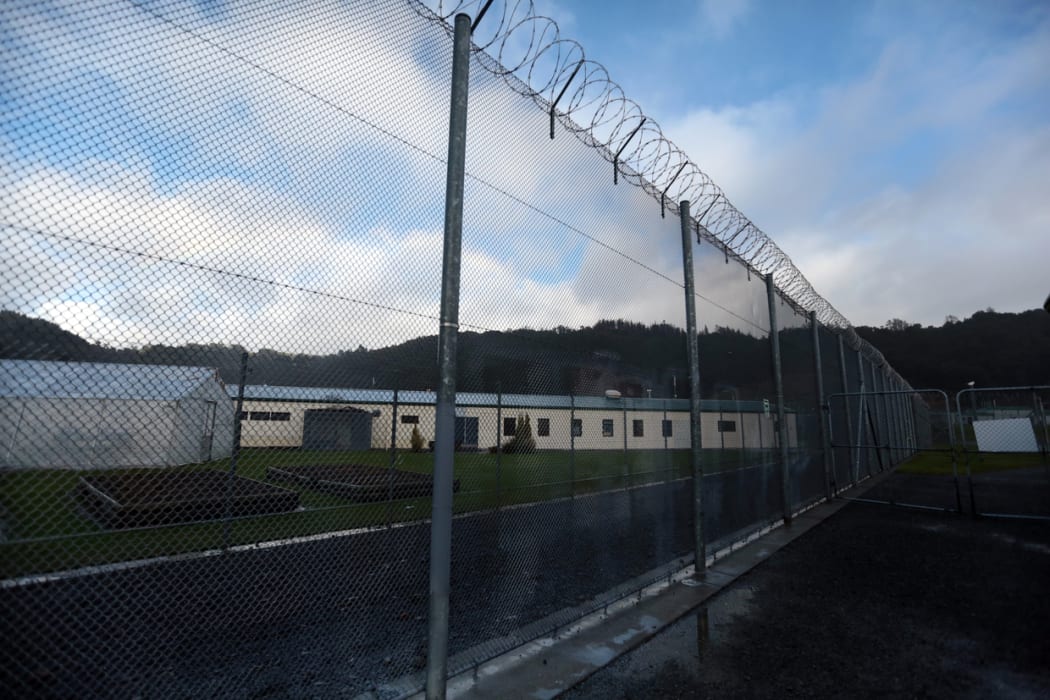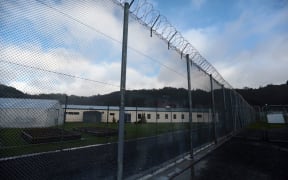The offer of more places for people wanting to study while in prison is being hailed as a step in the right direction, but not a cure-all.

Photo: RNZ / Diego Opatowski
As the Government tries to reach the targets it set three years ago to reduce re-offending, it is boosting the number of courses available, from 900 last year to 1700 this year.
The National Certificate in Computing and Certificate in Māori Studies are among the new qualifications prisoners can study towards.
Of the nearly 9,000 people in New Zealand prisons, about a third are already learning basic numeracy and literacy.
Dr Nesta Devine is an associate professor at the Auckland University of Technology's education department.
She is supportive of the move, but is concerned that too much of what is on offer is focussed on work skills and not on the social or cultural skills that would make prisoners more well-rounded and able to cope with life on the outside.
She cited the prison escapee and sex offender Phillip Smith as an example of someone who studied toward degrees in accounting and finance while in prison, but still learnt nothing about empathy or doing the right thing.
"What that chap was very much needing was a kind of moral education, a social education because he clearly felt no responsibility to the people he was involved with, even his accomplice.
"He's got an education but only of a very instrumental kind."
Dr Jarrod Gilbert from the Howard League for Penal Reform said outside prison 80 percent of people have NCEA level one, or what used to be known as school certificate, but in prison, less that 20 percent have that level of education.
He said it was a great initiative that will give prisoners a stake in society.
"It's not just about having skills to read and write that may open up job opportunities, it's as much about raising people's esteem so they feel good about themselves and part of the community and we know that those types of elements lead to crime, so if we can solve that we may solve some bigger issues.
"Education in so many ways is a key."
Garth McVicar is the spokesperson for the Sensible Sentencing Trust, which advocates on behalf of victims of crime.
He said prisoners should primarily be studying toward qualifications that get them work, but would support some focus on teaching prisoners right from wrong.
"So if these programmes that are going to happen in prison are going to teach people right and wrong and also going to give them a work ethic then I'm supportive of that, but if it is only going to give them ultimately a degree and they still haven't learnt what's right and what's wrong and what's expected of them out in society, then I think we're wasting our money."
The courses will be free for inmates, but Mr McVicar thinks that is unfair on taxpayers who will have to pay for them to study again when they have squandered their own opportunities while at school.
But Corrections Minister Peseta Sam Lotu-Iinga said more money will be saved if inmates are better educated.
"What we've gotta look at is the $105,000 on average that it is costing taxpayers to incarcerate a prisoner every year.
"We've got to ensure that they get out and are educated so that they can get better jobs and better integrate into society"
The Department of Corrections is aiming to reducing re-offending by a quarter in the next two years.




